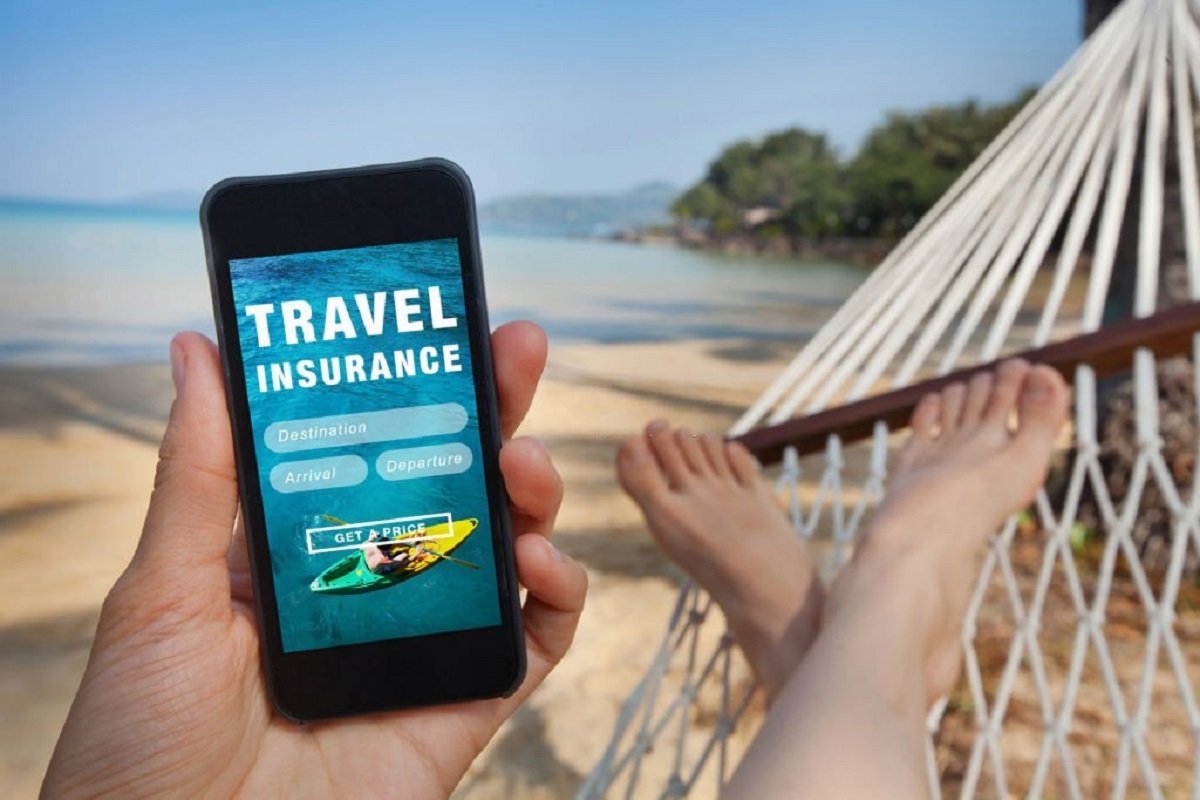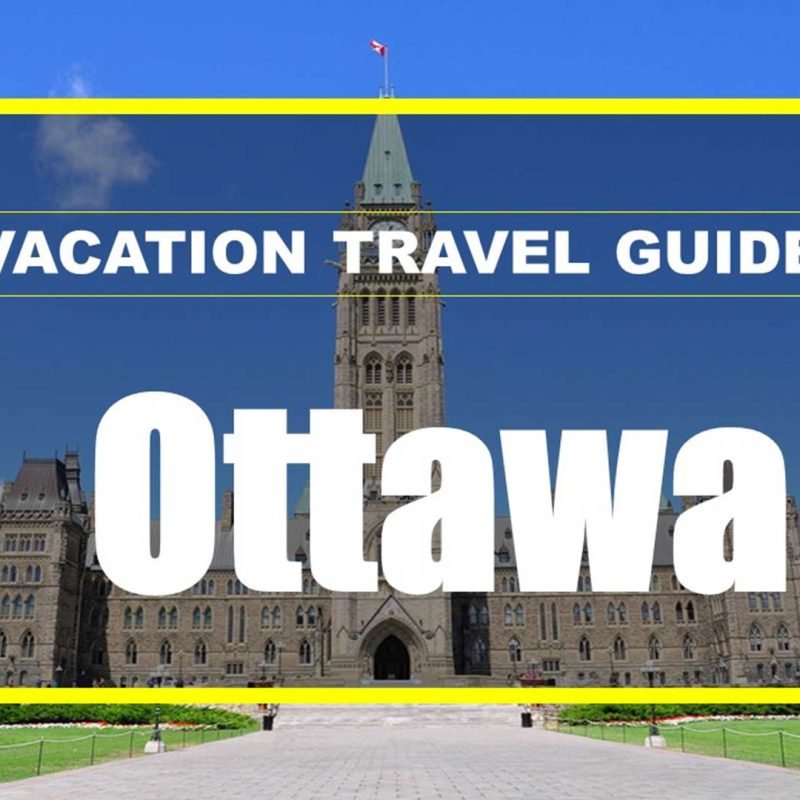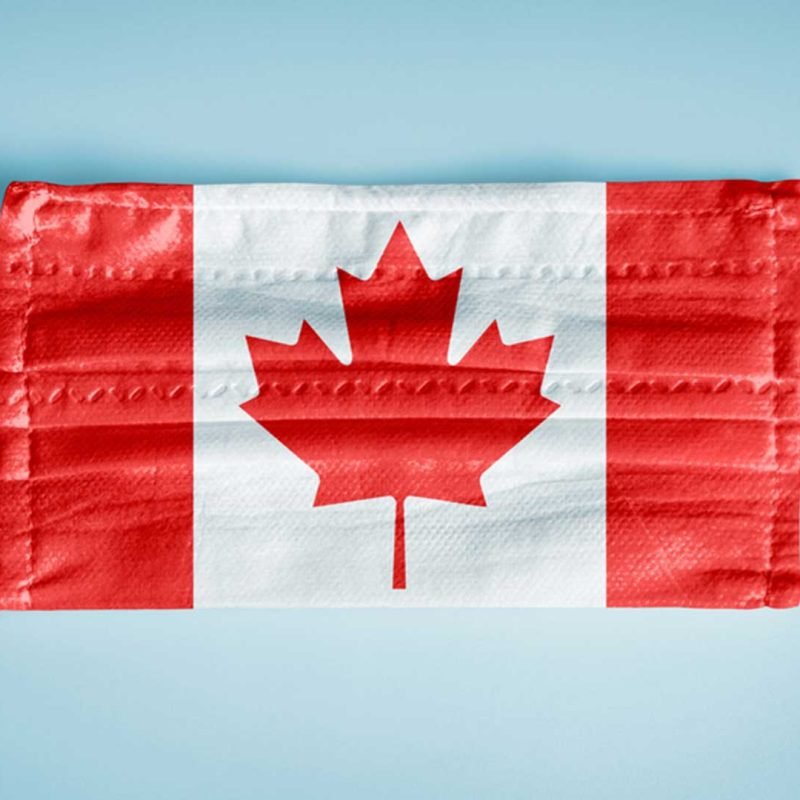Introduction on the 10 Best Things to Know Before You Buy Travel Insurance.
Get the inside scoop on travel insurance with this comprehensive 10 best things to know before you buy travel insurance guide. Learn the 10 best things you should know before you purchase, such as coverage options and exclusions. Get insured for your next trip today!
Before you embark on your next adventure, you might want to put aside a few minutes to think about your travel insurance. Whether you’re going on a backpacking trip, a luxury vacation, or just a short weekend getaway, travel insurance can mean the difference between a peaceful journey and a complete nightmare. But how do you choose the right policy for your needs? In this post, we’ll walk you through the 10 Best Things to Know Before You Buy Travel Insurance, so you can be sure you’re making the best decision for yourself. So, pack your bags, and let’s get started!
Traveling is one of the most exciting and fulfilling experiences one can have. It’s a chance to explore new cultures, taste different foods, and relax in exotic locations. However, travel planning can be overwhelming, especially when it comes to choosing travel insurance. With so many policies and providers to choose from, it can be difficult to know which one to pick. In this blog post, we will discuss the top ten things you need to know before you buy travel insurance, so you can make an informed decision and protect yourself on your next adventure. From trip cancellation coverage to medical evacuation, we’ve got you covered. Let’s dive in!
Understand what travel insurance is
Traveling to a new place can be one of the most exciting and fulfilling experiences of your life. The anticipation of experiencing new culture, new people and new places can be exhilarating but alongside, it’s important to consider unpredictable events like theft, illness, natural disasters, or other unforeseen circumstances that can disrupt your plans. This is where travel insurance comes into the picture.
Travel insurance is a type of coverage that is meant to help travelers in case of unforeseen situations that may occur. Essentially, travel insurance is a type of protection that covers you financially and legally in the event of trip cancellation or interruption, medical emergencies, loss or delay of luggage, or more.
Travel insurance is important for several reasons. First, it provides financial protection in the event of an unforeseen event that forces you to cancel or cut short your trip. Second, it can provide medical coverage in the event that you become sick or injured while you are traveling. Lastly, it gives you peace of mind, knowing that you have a safety net if something goes wrong.
When choosing travel insurance, it’s important to consider several factors such as coverage options, cost, exclusions, and exceptions. You need to review policies to make sure that you are not caught off guard in times of need. You should also consider whether the policy you are selecting covers you for pre-existing medical conditions or not. Moreover, you should double-check that the policy will cover you for all the activities you plan to indulge in, such as scuba diving, skiing, or bungee jumping, among others.
In the case of filing a travel insurance claim when something goes wrong, it’s important to have all the necessary documentation to support your claim. Collecting receipts, invoices or other documents related to your bookings can make the process of filing a claim easier and faster.
Know what types of coverage you need
One of the most critical things to consider when purchasing travel insurance is the type of coverage you need. Traveling without insurance is a huge risk, especially if you’re going abroad, and knowing what type of coverage you require can keep your journey safe and secure.
Medical coverage should be your top priority when traveling overseas. Most standard health insurance plans don’t provide coverage for healthcare services outside your home country, leaving you vulnerable to unexpected medical expenses. Therefore, it’s essential to choose a travel insurance plan that covers emergency medical expenses, including hospitalization, doctor visits, and emergency transportation.
Trip cancellation coverage is another important aspect of travel insurance. Suppose you’re traveling to a foreign country and some unforeseen circumstances such as illness, injury, or natural disaster, impedes your travel plans. In that case, trip cancellation coverage can protect your investment, reimbursing you for money lost due to trip cancellations.
It’s crucial to understand the difference between primary and secondary coverage when choosing an insurance plan. Primary coverage means that the insurer will cover the expenses upfront, while secondary coverage means the policy will cover the expenses only after exhausting all other options. Primary coverage is more expensive but highly recommended for those traveling overseas since it offers comprehensive protection.
Finally, it would be best to opt for a travel insurance policy with emergency assistance services. Emergency assistance services can provide 24-hour support to travelers in need and help coordinate emergency medical assistance, such as arranging medical evacuation, interpreting services or emergency funds, and legal assistance.
Know what’s included in your policy.
Before purchasing travel insurance, it’s crucial to know exactly what’s included in your policy. While it may seem like a tedious task, taking the time to read through your policy carefully can save you a lot of stress and money in the long run.
One important thing to understand is the difference between trip cancellation and trip interruption coverage. Trip cancellation coverage can reimburse you for expenses if you need to cancel your trip before departure, while trip interruption coverage can reimburse you for expenses if you need to cut your trip short due to an unexpected event.
It’s also important to be aware of the types of emergencies that might not be covered by your policy. For example, most travel insurance policies will not cover pre-existing medical conditions, so if you have any health issues, it’s important to disclose them when purchasing your policy. Additionally, some policies may not cover extreme activities like bungee jumping or skydiving.
Choosing a reputable provider with good customer reviews can also give you peace of mind. Do some research and read reviews from other travelers who have used the same provider you’re considering. If a provider has many negative reviews, it might be a good idea to consider a different company.
Read More Travel insurance posts!
Know what’s not covered by your policy.
As you research and compare travel insurance policies, it’s crucial to also understand what is not covered. Unfortunately, many travelers only find out about exclusions after they’ve experienced a mishap or accident. By familiarizing yourself with any specific exclusions, you can better prepare for potential risks and avoid any costly surprises later on.
Some common exclusions in travel insurance policies include pre-existing medical conditions, extreme sports and activities, and acts of terrorism or war. Additionally, standard policies may not cover lost or stolen items, delays or cancellations due to natural disasters, or incidents related to drug or alcohol use.
One way to ensure your coverage is comprehensive is to identify potential gaps in your policy and supplement with additional policies. For example, if you plan to participate in high-risk activities such as skiing or scuba diving, you may need to purchase specialized coverage that provides extra protection. Similarly, if you have a pre-existing medical condition, it’s important to verify that your policy covers any necessary treatment or medical expenses.
When it comes to reading the fine print, it’s helpful to review the policy document carefully and ask questions to the insurance provider. Don’t be afraid to clarify any confusing terms or vagueness in coverage descriptions. If you’re unsure about whether a particular activity or condition is covered, seek clarification before purchasing the policy.
Understand the exclusions and limitations
When purchasing travel insurance, it’s important to understand the exclusions and limitations of the policy you’re considering. This knowledge can save you time, money, and frustration down the road if you need to file a claim. Here are some points to keep in mind:
Firstly, it’s important to understand the difference between exclusions and limitations. Exclusions are situations or conditions that aren’t covered by the policy at all, while limitations are restrictions on coverage amounts or benefits. Understanding these terms will help you evaluate the scope of your policy.
Certain exclusion clauses are common across travel insurance policies, such as pre-existing medical conditions and acts of war or terrorism. Make sure you understand what’s excluded from coverage before purchasing a policy, especially if you have specific concerns or risks that you’re hoping to mitigate.
Limitations on coverage amounts and benefit caps can also affect the value and effectiveness of your travel insurance policy. Be sure to evaluate these costs and limitations up front, especially for medical expenses and trip cancellations or interruptions. You don’t want to be caught short of funds when you need them most.
Policy wording and definitions can also impact your coverage in important ways. Make sure you read the fine print and ask questions to clarify any ambiguities or uncertainties you encounter. The best policy is one that you understand fully and know will serve your needs when you’re on the road.
In short, understanding exclusions and limitations is critical when purchasing travel insurance. Taking time to evaluate these factors carefully will help you select a policy that matches your needs and priorities and can give you peace of mind when you’re traveling far from home.
Know how to make a claim.
No one likes to think that something could go wrong while they’re traveling, but accidents and unforeseen events can and do happen. That’s why it’s essential to invest in travel insurance before you go. However, simply purchasing a policy isn’t enough. To ensure that you’re fully covered in case of an emergency, you need to know how to make a claim.
Understanding the claims process is critical when it comes to travel insurance. Whether you’re dealing with lost luggage, a cancelled flight, or a medical emergency, you need to know how to access your coverage and file a claim. This means familiarizing yourself with the specific terms and conditions of your policy, as well as any deadlines or documentation requirements.
Unfortunately, there are many common mistakes that people make when making a claim, which can lead to delays or even denial of coverage. For example, failing to report an incident promptly or not providing detailed documentation of your losses could result in you not receiving the full amount of compensation you’re entitled to. To avoid these pitfalls, make sure to carefully read your policy and follow the claims process as outlined.
If you want to speed up the claims process, there are a few tips you can follow. Firstly, be sure to report any incidents as soon as possible, and keep all relevant documents and receipts in a safe place. You can also contact your insurance provider’s customer service team to get updates on your claim’s status and ensure that you’ve provided all the necessary information.
It’s also crucial to choose a travel insurance provider with good claims support, especially if you’re traveling to a high-risk destination or participating in adventure sports. Look for a company that has a proven track record of responding quickly and efficiently to claims, and that offers 24/7 support to its customers.
Know the claim process and timelines
Travel insurance is a must-have for anyone embarking on a trip, be it for work or leisure. While we all hope that we won’t have to use it, accidents and emergencies can and do happen, and it’s best to be prepared. Knowing the ins and outs of travel insurance is crucial to ensure that you get the coverage you need, should the worst happen. One of the most important aspects of travel insurance that you need to understand is the claims process and the timelines involved.
Understanding the Claims Process: The Importance of Knowing How to Make a Claim
Before you buy travel insurance, it’s essential to know what the claims process entails. While no one wants to be in a situation that requires making a claim, it’s crucial to know how to do so should the need arise. The claims process involves notifying your insurer of the incident, gathering and submitting relevant documentation (such as medical reports or police reports), and waiting for the insurer to assess the claim.
If you’re traveling abroad, it’s important to know the local laws and regulations surrounding the type of incident you’re making a claim for. For example, if you’re in a car accident, you’ll need to know the local laws surrounding motor accidents and the associated paperwork. Not knowing the claims process can lead to confusion, delays, and potential difficulties in getting your claim approved.
The Timelines Involved in Travel Insurance Claims: What to Expect
Once you’ve notified your insurer of the incident and submitted the necessary documentation, you’ll need to wait for them to assess your claim. This can vary depending on the complexity of the claim, as well as the insurer’s specific policies.
It’s essential to understand the timelines involved in travel insurance claims. Some insurers have strict deadlines for submitting claims, so you’ll need to act quickly. Others may take several weeks to assess a claim fully, and it’s important to understand the average waiting time associated with your insurer. Knowing the timelines involved can help you plan accordingly and avoid disappointment.
Common Misconceptions About Travel Insurance Claims
There are some common misconceptions about travel insurance claims that you should be aware of. One significant misunderstanding is that travel insurance will cover any type of loss or injury. While most policies do cover a range of situations, there are certain exclusions that you’ll need to be aware of.
For example, if you engage in high-risk activities such as extreme sports or mountaineering, you may not be covered for injuries sustained during those activities. Similarly, pre-existing medical conditions may not be covered by your policy. It’s important to read the fine print and understand the specific exclusions of your policy.
Tips for Making the Claims Process Easier and More Efficient
While the claims process can be stressful, there are steps you can take to make it easier and more efficient. Before you travel, make sure you have your travel insurance policy documents and emergency contact information with you. If you need to make a claim, notify your insurer as soon as possible, gather and submit all relevant documentation promptly, and follow up regularly to check on the status of your claim.
Being organized and documenting everything related to your claim extensively can also help speed up the process. By being proactive, you can ensure that you get the coverage you need and minimize the impact a travel calamity can have on your trip.
Read More Travel insurance posts!
Know the policy cancellation policy
When it comes to travel insurance, knowing the policy cancellation policy is critical. It’s important to understand the difference between trip cancellation and trip interruption coverage. Trip cancellation covers the cost of the trip if you need to cancel before departure or interrupt a trip due to a covered reason, such as illness or death of a family member or natural disasters. Trip interruption coverage, on the other hand, provides reimbursement for additional expenses you may incur if your trip is interrupted or postponed, such as hotel accommodation or transportation costs.
Another aspect to consider is pre-existing medical condition clauses. Make sure you know what is and isn’t covered under the policy if you have pre-existing medical conditions, as coverage varies between policies. Some policies may exclude coverage for pre-existing conditions altogether, while others might provide limited coverage or require additional documentation.
It’s also essential to consider the level of medical coverage and emergency evacuations provided under the policy. Will the policy provide sufficient coverage for any medical emergencies that may arise during your travels? In case of an emergency evacuation, will the policy cover the costs of transportation to a suitable medical facility? These are important questions to ask before purchasing a travel insurance policy.
Finally, do your research and take the time to review the reputation and ratings of the insurance company you are considering. Look for reviews from other travelers or consult trusted travel websites to ensure the company has a good reputation for customer service and reliability.
Know the policy renewal process
As you plan your next adventure, you’ve probably realized the importance of purchasing travel insurance to protect yourself against unexpected events like cancellations, travel delays, or medical emergencies. But what about renewing your policy? Many people overlook this crucial step of travel insurance, assuming their coverage will automatically renew or simply forgetting the renewal date. In this section, we’ll explore what you need to know about the policy renewal process, so you can ensure uninterrupted coverage for your travels.
Understanding the renewal period for your travel insurance policy:
Most travel insurance policies have a duration of one year, after which they must be renewed. It’s essential to know when your policy expires and when you need to renew it. Some insurance providers send reminder emails or alerts to warn you that your policy is about to expire, but it’s always best to double-check to avoid any lapses in coverage.
Importance of considering coverage changes and updates during renewal:
Your travel plans and insurance needs may have changed in the past year, so it’s crucial to review your policy and ensure it still meets your requirements. Consider any modifications, such as changes in the itinerary or any new health conditions that you might have developed. It’s also a good opportunity to compare different coverage plans and prices to ensure that you have the best coverage for your upcoming trip.
Options available for renewing your travel insurance policy:
Most travel insurance providers offer multiple options for renewing your policy. Some allow you to renew online, while others require you to call a customer service representative. You can also choose to extend your current policy, which is recommended if your trip lasts longer than your current coverage period.
Tips for ensuring a smooth and hassle-free renewal process:
Renewing your travel insurance policy can be a straightforward process. However, it’s essential to take a few steps to ensure everything goes smoothly:
- – Review your policy documents and make note of the renewal date.
- – Set a reminder on your calendar or phone to ensure you don’t miss the deadline.
- – Contact your travel insurance provider in advance to learn about the renewal process and any updates to your policy.
- – Consider purchasing annual travel insurance coverage to avoid the hassle of renewing for each trip.
- – Take the opportunity to reassess your travel insurance needs and coverage options.
In conclusion, renewing your travel insurance policy is crucial to ensure uninterrupted coverage for your upcoming travels. Take the time to review your policy and consider any changes before the renewal date to ensure the best coverage and a hassle-free renewal process.
Know what questions to ask before buying travel insurance
When it comes to preparing for your next trip, there’s one important thing that you shouldn’t forget: travel insurance. But with so many policies and providers out there, figuring out what you need can be overwhelming. That’s why it’s important to know what questions to ask before buying travel insurance. Doing so will help you determine what types of coverage you need, compare policies from different providers, and understand any existing coverage you may have.
One of the first steps is to understand what travel insurance covers. Most policies offer trip cancellation and interruption coverage, which can protect your investment in case you have to cancel your trip due to unforeseen circumstances such as illness or a natural disaster. Medical emergency coverage is also an important feature, covering the cost of medical treatment or evacuation if you become seriously ill or injured while traveling. Other common types of coverage include trip delay coverage, baggage delay, and loss or theft of personal items.
Once you know what types of coverage you need, it’s time to compare policies from different providers. Start by researching a few different companies and comparing prices, coverage options, and any exclusions or limitations. Be sure to read customer reviews as well to get a feel for the provider’s reputation and customer service.
It’s also important to know any existing coverage you may have. Many credit cards offer some type of travel insurance for free, such as trip cancellation or car rental coverage. Some health insurance policies may also have overseas coverage, so make sure you understand what coverage you already have before spending more money on travel insurance.
Finally, don’t forget to read the fine print. Policy details can be complex and filled with legalese, so take the time to understand all the terms and conditions before you buy. Look for any exclusions or limitations that may affect your coverage, such as pre-existing medical conditions or high-risk activities like extreme sports.
By knowing what questions to ask before buying travel insurance, you can ensure that you’re getting the coverage you need for peace of mind while you’re on the road. Take the time to compare policies and read the fine print, and you’ll be well on your way to a worry-free trip.
Conclusion on the 10 Best Things to Know Before You Buy Travel Insurance.
In conclusion, purchasing travel insurance is an essential step in ensuring a safe and stress-free travel experience. With numerous options available in the market, it’s crucial to do your research, evaluate your needs, and choose the right policy that suits you the best. We hope our comprehensive 10 Best Things to Know Before You Buy Travel Insurance guide on the ten best things to know before you buy travel insurance helped you make an informed decision. Remember, adequate coverage not only protects your finances but also provides you with peace of mind while you explore new countries and cultures. Happy travels!















